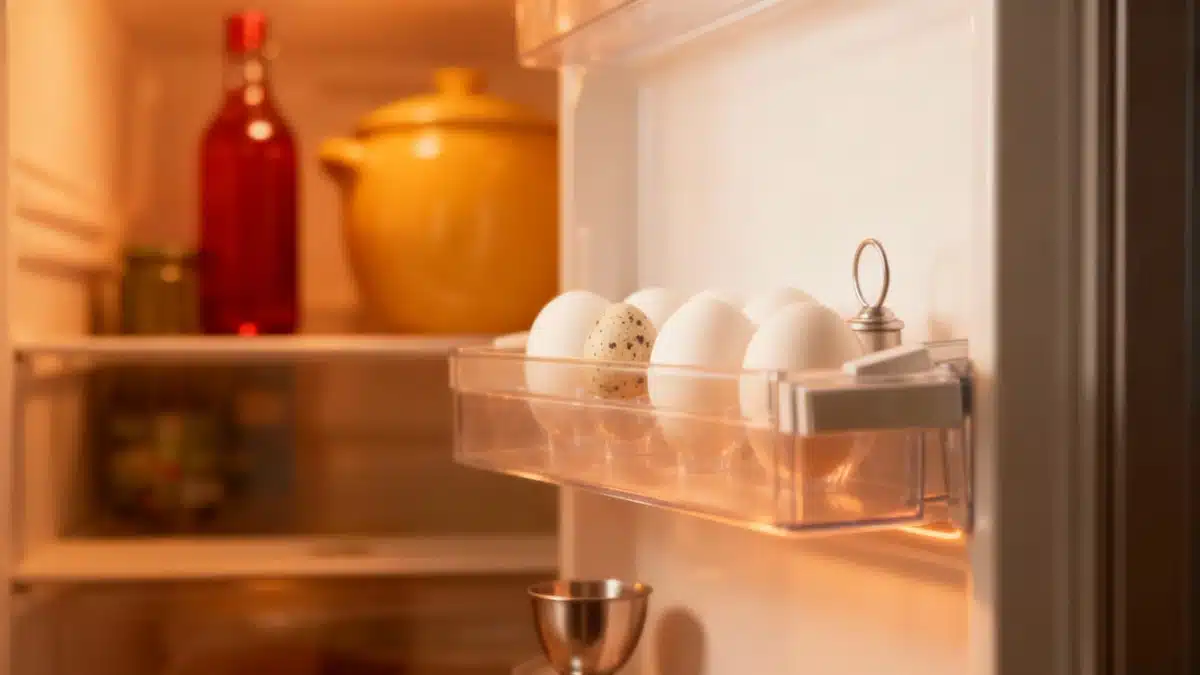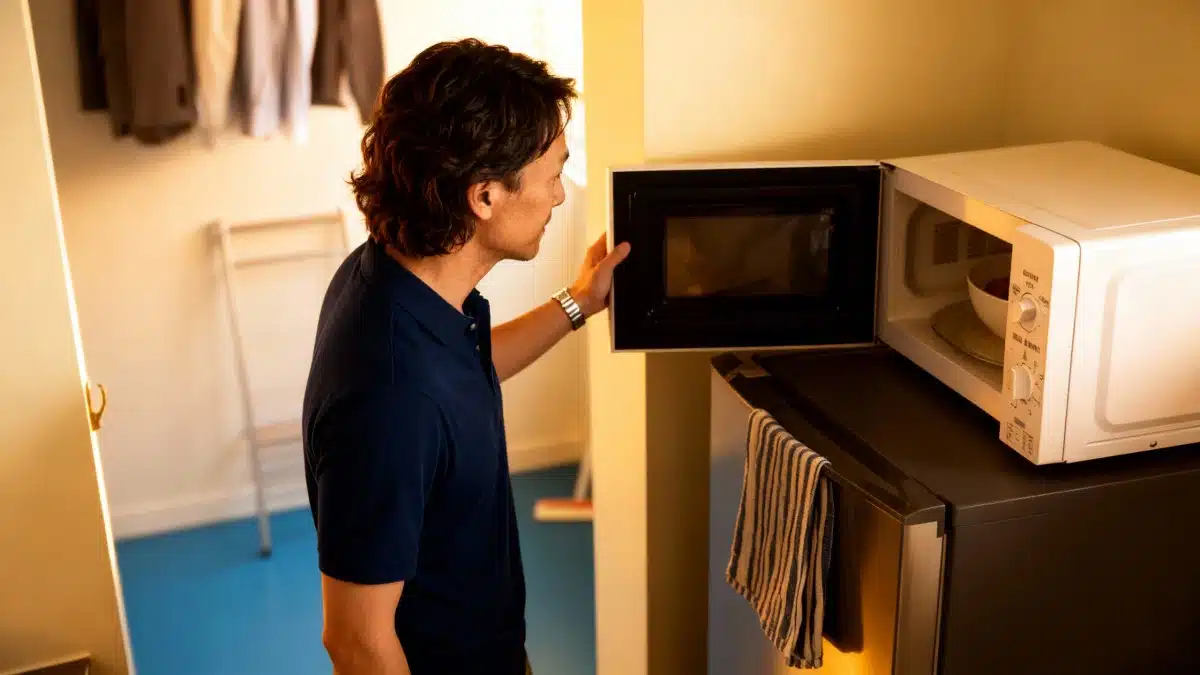Ever gazed at that humble little egg tray in your fridge and wondered, « What do you actually do, my oddly shaped friend? » Get ready, because what you’re about to learn may shake up your kitchen habits—and might just make you rethink everything you know about eggs (well, almost).
The Egg Tray: Not What You Think
For years, people have dutifully placed their fresh eggs into that dedicated refrigerator compartment without a second thought. After all, fridge makers include it for a reason, right? Well, here comes the twist: contrary to popular belief, this famous egg holder wasn’t actually designed for your fresh eggs. Its real purpose, recently brought into the spotlight by social media, is to store hard-boiled eggs that are already cooked.
Yes, you read that correctly! The egg tray’s primary role is not to keep raw eggs chilly, but to provide a practical spot for your hard-boiled eggs—ready to eat and easy to grab for a snack or to jazz up a salad.
Why Hard-Boiled Eggs Belong in the Tray
Why go through the trouble of designating a place for cooked eggs? It’s surprisingly logical. Hard-boiled eggs, unlike their raw siblings, genuinely benefit from the fridge’s cool embrace. It keeps them fresh and safe, making them a fantastic go-to for a quick snack or a nutritious addition to a meal. That little compartment you’ve been overlooking becomes a handy space to keep protein-rich bites always within reach.
- Hard-boiled eggs are an excellent source of high-quality protein.
- They’re packed with essential nutrients (your muscles and brain will thank you).
- They fit seamlessly into daily routines or almost any dish in need of extra oomph.
So, boil up a batch at the start of the week, stow them neatly in the egg tray, and enjoy convenient, healthy snacks at a moment’s notice. Your future self will approve.
What About Fresh Eggs? Let Them Breathe!
Big question: if the egg tray isn’t for fresh eggs, where should those go? Surprisingly, fresh eggs keep perfectly well at room temperature. In fact, stroll through a European supermarket and you’ll often find eggs sitting on shelves, unrefrigerated. Why? It’s all thanks to a clever piece of nature’s engineering called the cuticle: a natural protective layer that seals the shell’s pores and keeps bacteria at bay.
That shield, however, isn’t so keen on temperature swings. Regularly moving raw eggs in and out of the fridge (like every time you open and close that door) can lead to condensation, and moisture on the shell might invite unwanted germs to sneak inside. Just what you didn’t need with your morning omelet.
Of course, if you’re among the many who are still popping fresh eggs into the fridge’s egg compartment, don’t panic! It’s not exactly catastrophic. But a few changes can make a real difference if you want to optimize your egg storage:
- Avoid exposing fresh eggs to drastic and constant temperature shifts.
- If you want to really organize your kitchen, invest in a countertop egg holder—there are plenty of stylish options that double as décor!
Rethinking Kitchen Rituals: The Hidden Purpose Revealed
This (let’s admit it—somewhat mind-boggling) discovery about your fridge’s egg tray is a great reminder: just because it’s « always been done this way » doesn’t mean it’s logical. Kitchens are full of little mysteries, and objects whose secret functions are waiting to be rediscovered.
Next time you reach for an egg, you’ll know exactly where to put each one—and you’ll be quietly smug about it while everyone else is still sticking their fresh eggs in the fridge tray like it’s 1992.
Tip of the day? Store those boiled eggs snug in the fridge tray, let your raw eggs breathe at room temperature (in a handsome countertop holder, if you’re feeling fancy), and give a little nod to those unsung design geniuses at your fridge manufacturer. You—yes, you—have just cracked the egg code. (Sorry, couldn’t resist one yolk-related pun!)

John is a curious mind who loves to write about diverse topics. Passionate about sharing his thoughts and perspectives, he enjoys sparking conversations and encouraging discovery. For him, every subject is an invitation to discuss and learn.






